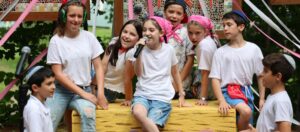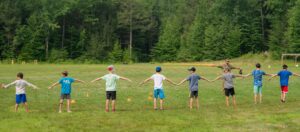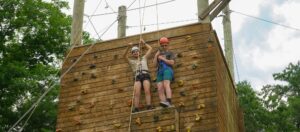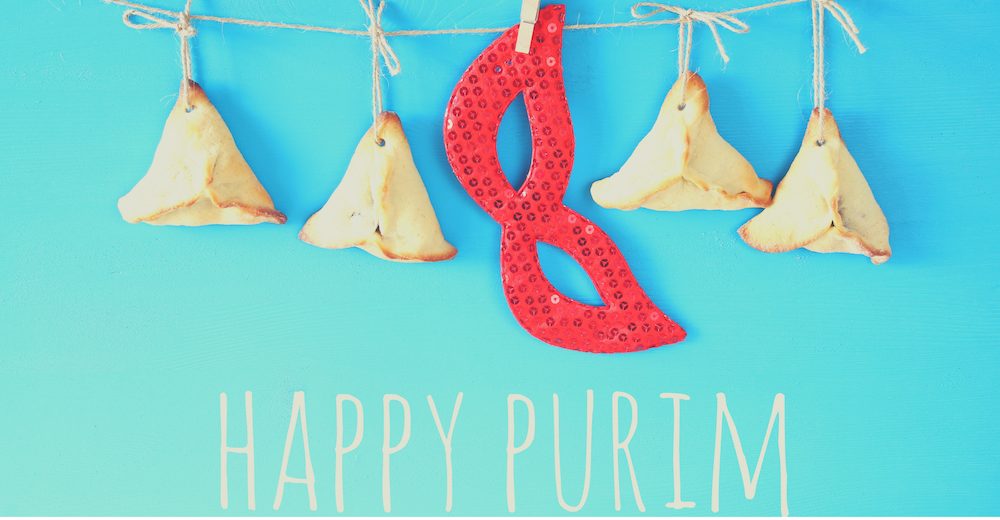Perhaps the most famous question asked about Megillat Esther every Purim is, “Where is God?” The name of God is not mentioned even a single time in the entire Megillah, which is strange for a story about God rescuing the Jewish people. The generally accepted answer is that the Megillah is teaching us that God is acting on our behalf, even when God is hidden.
As I was rereading the Megillah a few days ago, another question occurred to me. At the end of the story, in Chapter Eight, there is a line we all say out loud together when we read the Megillah: לַיְּהוּדִים, הָיְתָה אוֹרָה וְשִׂמְחָה, וְשָׂשֹׂן, וִיקָר, “And for the Jews there was light and happiness, joy and glory.” As we well know from our incredible Havdallah services at Yavneh, this line is also central to the Havdallah service. What’s the connection between Purim, Havdallah, and the concept of אוֹר, light?
Havdallah literally means “separation,” as it’s the ritual separating Shabbat from the rest of the week. We reflect on the special light of Shabbat and focus it toward bringing it into the week with us. We recite the same line from as we gather that light together and prepare to bring it with us into the week, we recite the line from the Megillah: “And for the Jews there was light and happiness, joy and glory,” and continues, “So may it be for us.” The Talmud tells us that “light” refers to the Torah. When we received the Torah at Sinai, God revealed God’s divinity to us. We accepted the Torah because the experience of seeing God was so strong that we could not help but be changed by it. As humans, we were given no choice!
During Purim, however, God’s light was hidden. The Jewish people were in exile. The Temple in Jerusalem had been destroyed. What hope was there for us? What agency did we have to fight back against the likes of Haman and Achashverosh? The Jews of Shushan could easily have been destroyed, if Esther and Mordechai had not realized their abilities to act to save their people. When the Jews defeated the followers of Haman, it was as if the darkness had been destroyed and light came flooding into the world. There was a spiritual rejuvenation and revolution that swept through our people, to such an extent that the Talmud tells us that we collectively rededicated ourselves to the Torah.This is the legacy of Purim and why we recommitted to Torah at that time: instead of waiting for miracles, Esther and Mordechai acted as God’s agents to save the Jewish people from destruction. After experiencing the miracles of Purim, we accepted the Torah not because we had no other choice, but as a people with free will newly seeing the light of God in our world.
Let’s connect this back to Havdallah. There’s no Havdallah like what we do at Yavneh. On Shabbat at camp we experience the holiness of the day communally. After weeks packed with activity, we eke out a taste of the Divine light through davening, eating, reading from the Torah, learning, and just being together. When we come together for Havdallah, it’s often the most powerful experience of the week as we sing, jump, and dance together. We actively and collectively bring the holiness of Shabbat to fuel our coming week. Purim reminds us that this light is always everywhere around us, waiting for us to reveal it, to experience. It. So may it be for us, at camp and all year round.
חג פורים שמח
Rav Yaakov
Mashgiach Ruchani
P.S. To all camp families – In the midst of Purim madness, don’t forget to register for New Camper Orientation In May and get a head start on filling out your camp forms – they are now online and due by May 1st!
P.P.S. Here is a link to the dates of Kayitz 2020!! Only 106 more days until camp!




